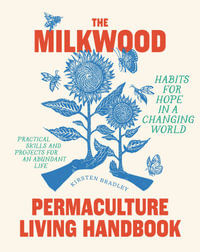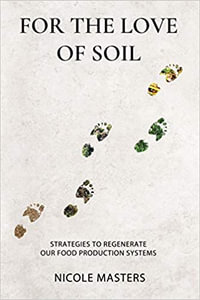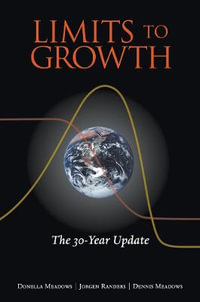John N. Cooper, for AxisofLogic.com-
This is a wonderful book. Originally published in 1972 as Limits to Growth and refreshed in 1992 in Beyond the Limits, the authors have now issued a 30-year appraisal [Chelsea Green Publishing, ISBN 1-931498-58-X], in which they examine the progress made both in their understanding of the mechanisms underlying the impact of humanity on the world ecology and of steps taken toward remediating the accelerating approach to trainwreck that is mankind's ill-managed and uncontrolled 'footprint' on this planet's environment.
Briefly, humanity has overshot the limits of what is physically and biologically sustainable. That overshoot WILL lead to the collapse of the planetary environment's ability to support not only our species but much of the rest of the biosphere if we do not act rapidly and effectively to reduce our footprint. These conclusions provide reasons for both optimism and alarm: optimism because humanity has demonstrated its capacity to act appropriately in one specific instance; and alarm because thirty years have been largely wasted since the consequences of our failing to act were detailed. There is still time but the need to act quickly and effectively is urgent. The authors demonstrate that the most critical areas needing immediate attention are: population; wasteful, inefficient growth; and pollution. They show how attention to all three simultaneously can result in returning the human footprint on the environment to manageable, sustainable size, while sharply reducing the disparity between human well-being and fostering a generous quality-of-life worldwide. Absent this, the prospects are grim indeed.
The book is divided into three sections, the first outlining in principle the authors' systems analytical approach to understanding the planet's ecology. Their presentation is clear and comprehensible with an abundance of charts and figures that make visualizing the concepts easy. They successfully avoid the pitfalls of many technical presentations by using familiar analogies and largely avoiding professional jargon. As a result readers come away with insights not just into global interconnectedness of inputs, outputs, accumulation and feedback but also the significance of such dynamics in local, even personal, situations.
The second section deals with the authors' updated and revised modeling program, World3, which they utilize to test the plausible effects of changes in human political, economic and social behavior on the environment. Their discussion of World3 focuses on the assumptions for, and results of, a variety calculational scenarios. Details of their latest programming revisions are reserved for an index. Repeatedly they emphasize that their results are NOT prescriptive, but merely descriptive in general terms of likely consequences of humanity's failure or success in rising to meet the issues cited. Again excellent graphics for the various scenarios allow the reader to see at a glance what different approaches toward rectifying past, present and future environmental damage may have.
The final chapters describe options open to humanity that the authors believe have the best chance of avoiding social, economic and probably political collapse in the next century or so. We have a choice: the human experiment, possibly even the biological experiment, that is life on this planet can yet succeed and persist in a sustainable way. But to do so will require our species as whole consciously and deliberately to take immediate, remediating steps, now, seriously and adequately to address the issues we have so far failed to do so effectively. It IS up to us. (c) Copyright 2005 by AxisofLogic.com.
-- John N. Cooper
"In 1972, The Limits to Growth was published as a clarion call to begin changing the way the world worked so we safely made it to 2050-2070. The authors were clear that the path of change needed to begin "now" so we made a course correction within the next 30 years. Sadly, the message they wrote got badly misunderstood and by 30 years later, scores of critiques to the book claimed the authors warned that the world would run out of oil and other scare resources by 1990 or 2000. It is time for the world to re-read Limits to Growth! The message of 1972 is far more real and relevant in 2004 and we wasted a valuable 30 years of action plans by misreading the message of the first book."--Matthew R. Simmons, energy analyst and founder, Simmons & Company International, The world's largest energy investment banking practice

























